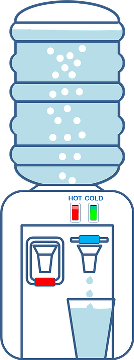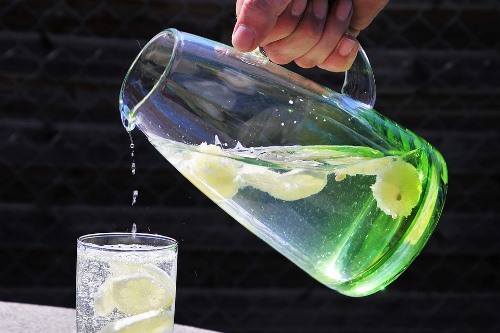|
Domestic Drinking Water in Bolivia This information on water service for your home or apartment in Bolivia will generally apply to almost any city. Each major city in Bolivia has it's own water company and there may be slight differences in the processes.
REQUESTING A CONNECTION When you rent a home, the water connection is usually already set up in your landlord's name and is usually one of only three basic services (including electricity and natural gas) that have already been set up and it may not be necessary for you to do so. You will simply take over the payments and this should be in your written contract. The invoice you get each time you pay will be in their name. If you should need these invoices for tax purposes, the government allows you to turn them in and deduct them even if they are not in your name because they understand it is a rental situation. If you rent a condo or apartment, you might not get a separate bill or invoice. Some condos and apartment buildings do not have separate meters for each apartment. In this case, the cost is included in the ‘expensas’ (month maintenance fees) that you will pay. The total bill for the entire building is split evenly between all the condos or apartments, each one paying the same amount. This amount will be included in the monthly maintenance fee, which is why this fee might not be the same every month.
If you buy or build your own home, the connection and invoicing must be in your name. In addition, if you purchase a home it may already have a meter, but if it doesn’t, or if you build a home you will have to purchase a meter and contact the local water company for connection. The local water company has several requirements before it will connect your meter or provide 'agua' (plus sewage and trash pick up) services to your home. The requirements to set up these basic services ('servicios básicos' or 'obras públicas') are different for residential purposes and for businesses (as are the prices). 'Agua' is still relatively inexpensive in Bolivia, but businesses are charged about 3 times as much as residences. You should contact the local water utilities company to ask what will be required of you in terms of paperwork or permits, but in general, you will need to show a copy of your rental contract, building permit, or even a prior electricity bill from the same home so the company can see the exact location, and you will also need to show your identification. There may be other requirements depending on your situation. The local water company in Santa Cruz is called SAGUAPAC and it is actually a cooperative. Saguapac is the best managed water company in all of Latin America, and is the world's LARGEST water cooperative (meaning it is fully owned and operated by its customers). It treats 100% of all wastewater generated. Your monthly bill must be paid in full each month at the local Saguapac office, or any bank or credit union. You can even pay it at some grocery stores in Santa Cruz. Your water will be cut off if you are late paying your bills more than two months in a row. The process is the same for the payment of bills to water companies in other cities. MAKING SURE YOU STAY HEALTHY

We don’t recommend you drink tap water immediately upon arrival. Although it is treated and supposedly apt for human consumption, your body will have a lot of new flavors, ingredients, food additives, and bacteria to get accustomed to, so it is probably not a good idea. You can either purchase bottled water (filtered) in grocery stores (see below and link above), have it delivered to your home (for use with a cooler) (see below), use a filter on your faucet (see below) or buy a large pottery or ceramic filter/container (also found in grocery stores), or you could boil it, which is what the majority of the population does. You simply heat the water until it begins to boil, then time it for 20 minutes at the boiling stage. The inconvenience with this is you have to wait for it to cool down, which can take several hours. You will find when you boil it, that it leaves a white chalky residue on your pot. This is not dirt, it is a mineral that is left behind and washes off easily with lemon or vinegar. BOTTLED FILTERED WATER / COOLERS There are several companies that sell water in big bottles (called ‘bidones’ or ‘sifones’), of the type you put on a large water cooler stand (called a ‘bebedero’ or ‘dispensador’). You have to purchase the bebedero separately. You can usually purchase these at any store that sells other household appliances like blenders and refrigerators. They cost anywhere from $50 to $200 depending on the size, and whether or not they refrigerate or heat the water. A simple stand will cost about $25-$30. There are two companies that will deliver bottled water in bottles of all sizes. They also sell/rent the dispensers to your home or office: Sifón Santa Cruz Villa Santa
There are several brands of good bottled drinking water that you can purchase in grocery stores in small personal-sized bottles. El Fuerte and Villa Santa, as mentioned above, and also Agua Mineral “La Cabaña” (which comes in several flavors including lemon, lime and papaya) and Agua Mineral “La Cascada” (also in lemon), and Agua Mineral “Viscachani”, also in several flavors. You can find products from these five companies on grocery store shelves. There are two kinds of mineral water (con gas – bubbly) and (sin gas – flat, no bubbles). People tend to refer to bottled drinking water as “agua mineral” even if it’s just filtered and isn’t really mineral water). FAUCET WATER FILTERS You can sometimes purchase small, attachable faucet filters at some grocery stores, and at home improvement stores like American Home Center and Multicenter, found in major cities. A WORD ABOUT ICE When you go to a restaurant or when you are looking for ice in bags at the grocery store, keep in mind that you don’t know if the water the ice is made from has been purified or not. Even if you are at a friend’s home or someone’s office, when offered a drink, it is safer to request it be “sin hielo por favor” until you’ve lived here long enough to have ensured your body is ready. They probably have NOT purified or boiled it because they don’t need to – their bodies are used to it.     |
